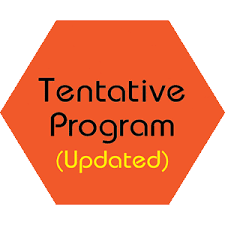
Hsing-Yu Yang
Mackay Medical College, Taiwan
Title: Effect of the NASA mission X program for promoting children’s healthy eating and active living in rural district elementary schools: A clustered randomized controlled trial
Biography
Biography: Hsing-Yu Yang
Abstract
Introduction: Childhood obesity is a major global public health issue. This study assessed the effect adapted by the USA National Aeronautics and Space Administration’s (NASA’s) mission X (MX) program on children’s knowledge, attitude, and practice of healthy eating and active living (HEAL) and weight status in rural elementary schools in Taiwan.
Methods: An 8-week cluster randomized control trial was conducted in 2016-2017 school year. Eight rural elementary schools were randomized into intervention and control groups. All 3rd and 4th graders were invited to join, N=92 in intervention, 109 in control group. The intervention group received the intervention (included four sessions aimed to train students with exercises like crab walk, bear crawl, squat, pushup, rope-jumping, and running across cones. Two other sessions aimed to improve students’ water drinking in school, and their knowledge of food groups and balanced diet. The two other sessions were circuit trainings.). Child weight, height, HEAL (spell out) knowledge, attitude, and practice related to xx were measured at baseline and post-intervention. Mixed-effect model was used in analysis.
Results: Compared to the control group, the intervention group had significantly more improvements in physical activity knowledge score (+0.91 vs. +0.25, p=0.002), diet knowledge score (+0.62 vs. +0.17, p=0.044), and score of interests in NASA and space exploration (+0.34 vs. -0.07, p<0.0001). BMI increased from 18.4 to 18.6 (p<0.05) for the control group but did not change for the intervention group. The changes in BMI between groups did not differ significantly.
Conclusion: The adapted NASA MX program was feasible and acceptable among rural students in Taiwan. The program improved children’s HEAL knowledge.

